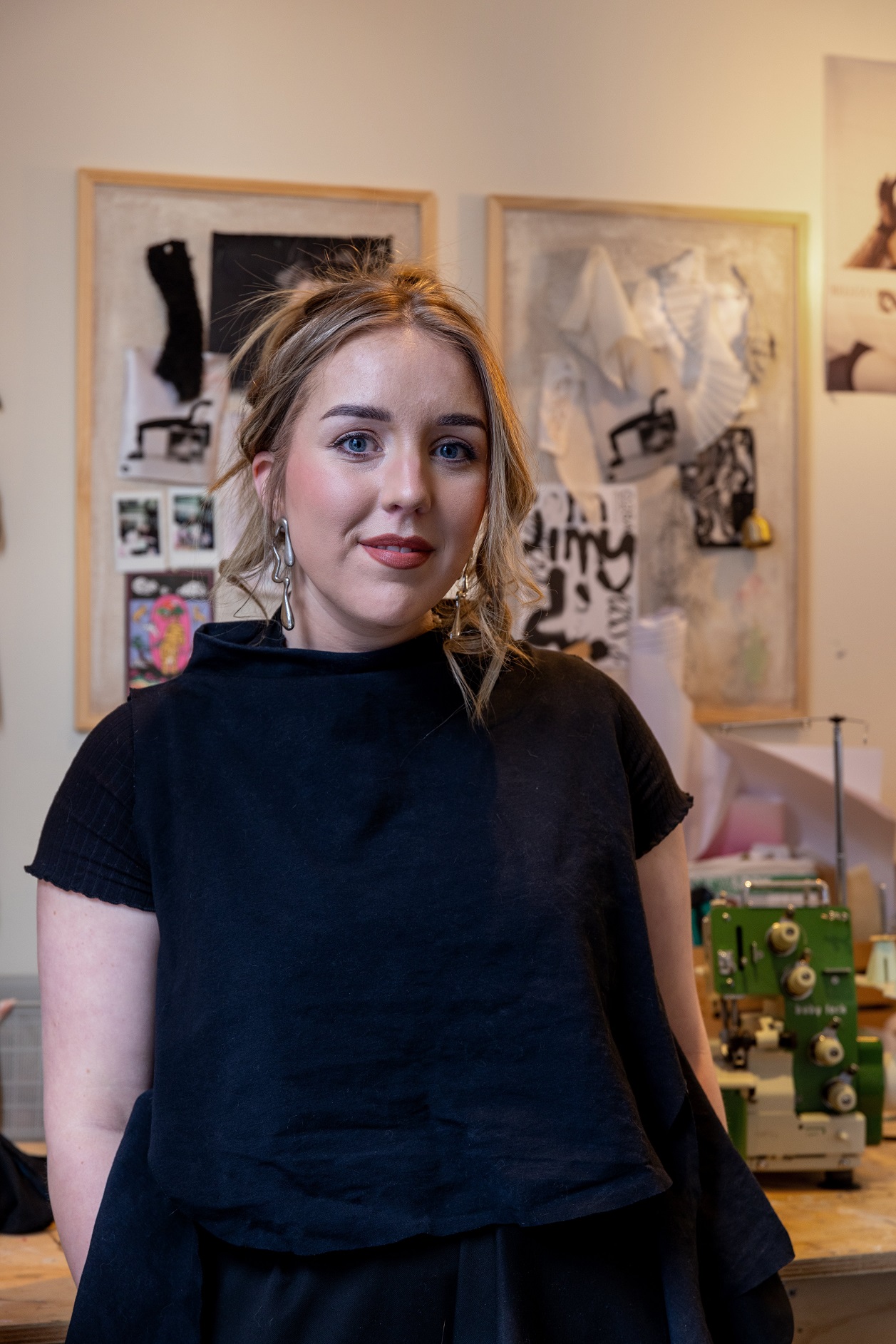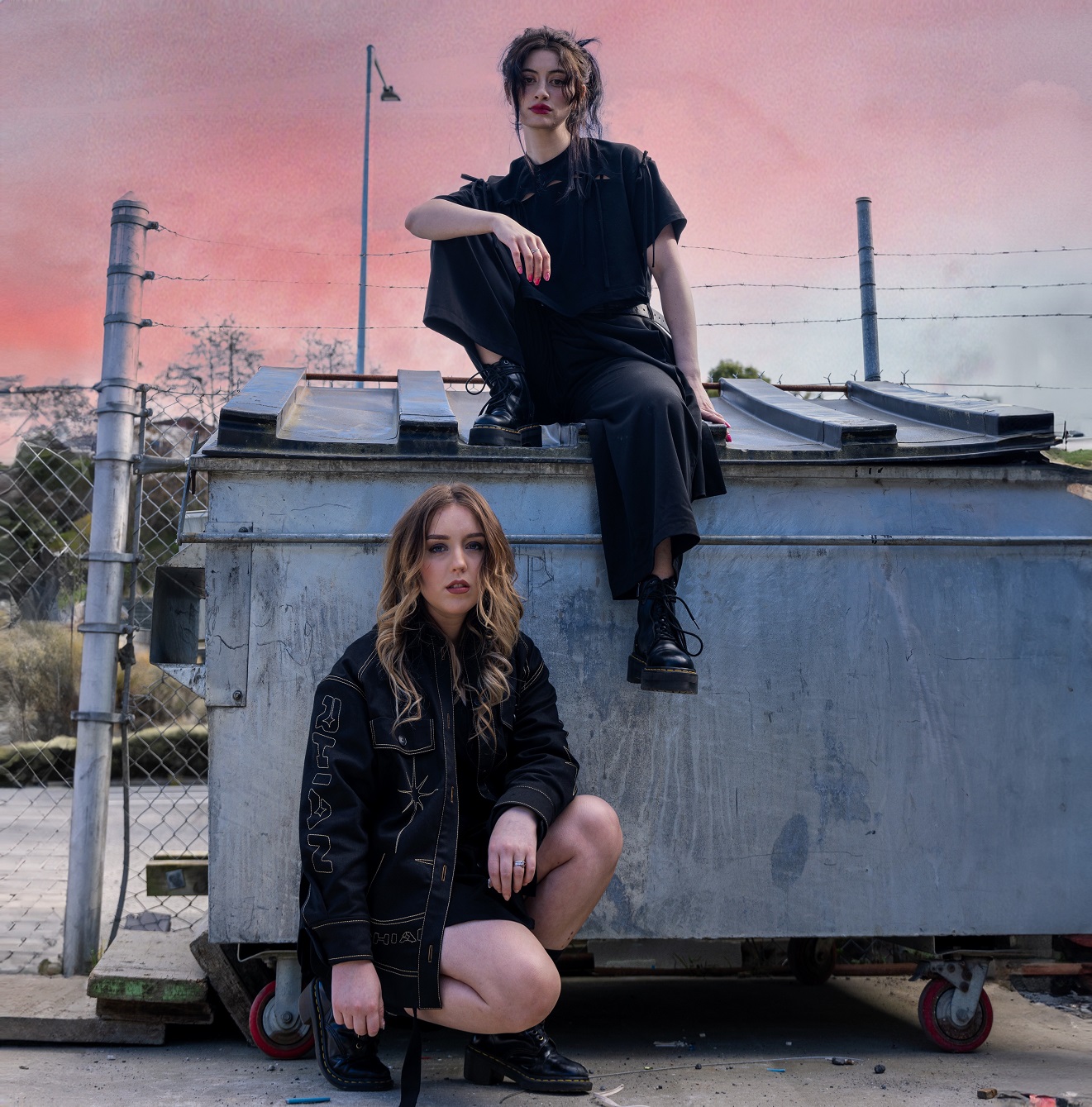From teaching textile design at Taieri College to launching her own label - which she’ll be showing at iD for the first time this year - Brittany Nelson-Misa is a quiet force in the local fashion industry, finds Josie Steenhart.

"Mum still recalls how upset I was when she bought me plain navy leggings instead of the patterned ones I loved. From then on, I was determined to dress myself - even if it meant mixing clashing colours and prints.
"I also loved helping my gran with the ironing. I was fascinated by the different fabrics and colours that came out of the washing basket."
From her Dunedin workroom, which she describes as an "organised disaster full of mood boards, drawings, art, plants, far too many lamps and most importantly my cats, who often like to sit near the window in the sun" Brittany Nelson-Misa says she was also selective with her models/clients from an early age.

"Looking back, those small moments really shaped my interest in fashion, and my love for unique clothing, accessories and self-expression."
After studying textiles and design throughout high school, at 16 Nelson-Misa entered "a few local fashion shows", which she says were a great way to gain experience in the industry.
Wanting to learn more, she then went on to study fashion at Otago Polytechnic, completing a bachelor of design in fashion.
After graduating, she worked with several Dunedin brands, learning hands-on skills in pattern drafting, sewing, screen printing and embroidery.
"Working in different areas of the industry gave me a real insight into both the creative and production sides of fashion," she says.
"It also opened my eyes to some of the challenges - seeing mass production up close made me more aware of its environmental impact and the importance of ethical practices.
"That experience really shaped my approach to design and ultimately led me to create a made-to-order brand - Rhian - focusing on reducing waste and making clothing in a more considered way."
The name was chosen as it is her middle name and "always felt like a true reflection of who I am".
"Though I was born in Cardiff, Wales, and moved to New Zealand when I was young, this name has always connected with me. When I created my brand, I wanted it to capture my personal aesthetic, and choosing a name that was meaningful to me felt essential. It’s a name that speaks to my roots and to the heart of what Rhian stands for."
Nelson-Misa says she started Rhian because of "my inherent need to express myself through fashion".
"I have an intense need to be immersed in creativity. I don’t go a day without sewing, drawing, painting or designing. Rhian was born from that constant drive to express myself through fashion.
"It’s not a mainstream brand, and I never intended it to be. Instead, it’s a brand that’s authentically myself and a reflection of my personal aesthetic - designed with the hope that others who appreciate unique, thoughtfully made pieces will connect with it."
Her design process often begins with the fabric itself, where a "love for art and poetry" is blended into digitally printed materials.
"This allows my garments to tell a story that goes beyond just shape and silhouette."
Nelson-Misa says she’s drawn to natural materials particularly for their texture and movement, "because they bring a level of comfort and connection that’s integral to the way a garment speaks to its wearer".
"I think texture is such an important aspect of buying and designing clothing. I personally find that natural fibres are far more enjoyable to wear than polyester materials. I love working with any form of silk, cotton and rayon. I have an obsession with sand-washed silk. It’s something about the way it drapes, the almost liquid-like movement, and the fact that it’s matt and shiny at the same time."

"I teach ages 13-18, which is year 9-13. I teach mainly textiles (from designing to pattern making and construction) and I also teach leather making and jewellery making," she says.
"When I was 15, I began teaching group fitness classes (random, I know!). But it was here that I found a love for teaching, and although this was in a totally different subject area, it was the ability to help, inspire and motivate people that I found fulfilling. I found contentment in the fact that someone could be having a terrible day, come to my class and leave in a better head space than when they entered, and that I found empowering."
So after working in the industry for a few years, she added a master’s in teaching to her already impressive resume.
"The best part of my job now is helping students to have the confidence to express themselves creatively. I think it’s important to give students a space where they can be authentically themselves, no matter what their background or where they come from. My classroom is a space that celebrates diversity in all forms."
Her students will have an opportunity to see the design talents of their teacher on display at this year’s iD Dunedin fashion show, where the latest Rhian collection will be showcased on the infamously long railway station runway.
"Explore the Ethereal is about challenging the balance between utilitarian functionality and other worldly grace," Nelson-Misa says.
"Each piece is a tribute to the multifaceted nature of design, combining delicate, dreamlike elements with practical, utilitarian details. Inspired by the poetic simplicity of the past, this collection captures the essence of timeless elegance while offering versatility and purpose. It’s a collection of oversized silhouettes and dark palates with a touch of romanticism."
With that achievement under her (sand-washed silk) belt, Nelson-Misa has plenty to keep her busy for the year ahead.
"I intend to help my textiles students create an outfit to enter into the Hokonui Fashion Design Awards, and take a trip with my class to Wellington for the World of Wearable Arts show," she says.
"This year will be filled with trips that can inspire my students, and expose them to the incredibly creative and fulfilling side of the fashion industry.
In terms of her brand, she plans to produce small runs of limited-edition textile prints, partake in pop-up shops and small exhibitions around New Zealand and "most importantly" design and make new collections that reflect slow-fashion values.






















